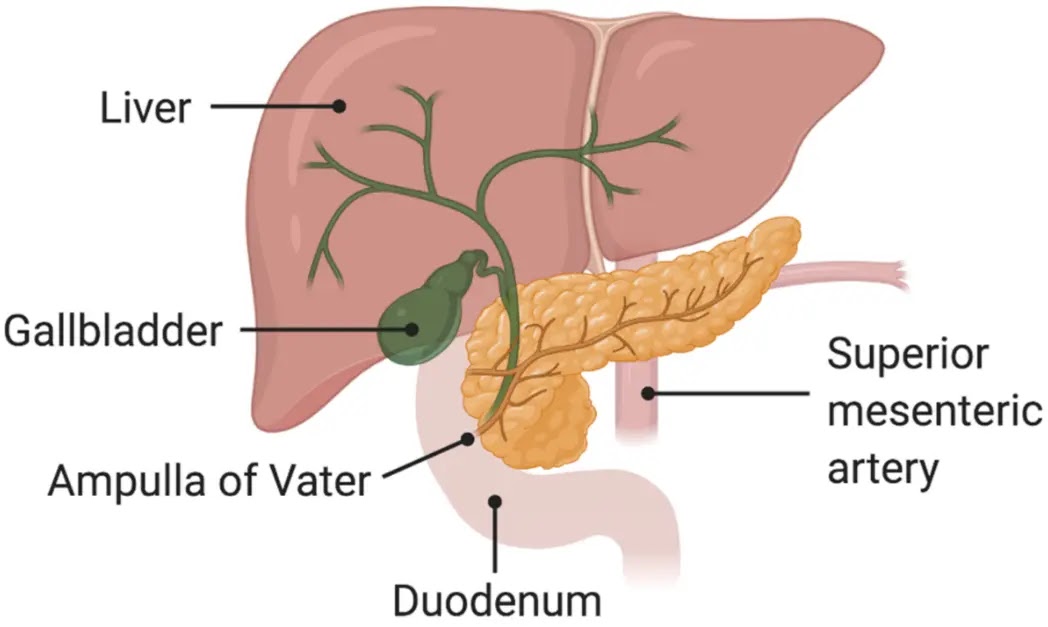Welcome back to our blog as we delve deeper into the enigmatic world of Ampullary Cancer (AM-poo-la-ree). Ampullary cancer is a rare form of cancer that develops in the ampulla of Vater, a critical area of the digestive system where the bile duct and pancreatic duct converge and release their contents into the small intestine. Today, we will provide comprehensive insights, shedding light on what Ampullary Cancer is, its symptoms, potential causes, risk factors, and empowering treatment options.
What is Ampullary Cancer?
Ampullary Cancer, also known as ampullary carcinoma, is a malignant tumor that arises in the ampulla of Vater. The ampulla of Vater is an essential anatomical structure that plays a key role in the digestion process. It serves as a junction where the common bile duct from the liver and the main pancreatic duct merge, allowing the discharge of bile and pancreatic enzymes into the small intestine. When cancer develops in this area, it can impact various nearby organs, such as the liver, pancreas, and small intestine.
The Enigmatic Symptoms. Recognizing the symptoms of Ampullary Cancer is crucial for early detection and prompt medical intervention. One of the primary symptoms associated with this condition is jaundice, which results in yellowing of the skin and eyes due to elevated levels of bilirubin in the bloodstream. Other symptoms that may arise from Ampullary Cancer include clay-colored stools, abdominal pain, fever, rectal bleeding, nausea, vomiting, and unexplained weight loss. These symptoms may be subtle initially, but if they persist, it is essential to seek medical attention for a thorough evaluation. Also, read proton beam therapy for pancreatic cancer.
The Elusive Causes. While the exact causes of Ampullary Cancer remain unclear, researchers believe that it, like many other cancers, starts with mutations in the DNA of cells in the ampulla of Vater. These mutations disrupt the normal cell cycle, leading to uncontrolled cell growth and tumor formation. Over time, these cancerous cells can invade surrounding tissues and potentially spread to other parts of the body. Research is ongoing to better understand the underlying causes of Ampullary Cancer and to identify potential risk factors.
The Risk Factors of Ampullary Cancer
Several factors may increase the risk of developing Ampullary Cancer. It is more commonly diagnosed in adults over the age of 70, and males appear to have a slightly higher risk compared to females. Additionally, individuals with a family history of certain inherited syndromes, such as familial adenomatous polyposis and Lynch syndrome (hereditary nonpolyposis colorectal cancer), may have an elevated risk of developing this rare malignancy. Early screening and vigilant monitoring may be recommended for those with a family history of these syndromes.
Empowering Treatment. Empowering treatment for Ampullary Cancer often involves an aggressive surgical intervention to remove the cancerous growth along with surrounding healthy tissue. Achieving clear margins during surgery is essential to minimize the risk of recurrence. Depending on the stage and extent of the disease, additional treatment modalities like chemotherapy or radiation therapy may be recommended to complement surgery and improve treatment outcomes.
In recent years, advancements in medical research have led to promising targeted therapies and immunotherapies, offering new hope for patients with Ampullary Cancer. Clinical trials exploring innovative treatments are underway, aiming to further enhance the management of this challenging disease.
Understanding Ampullary Cancer is crucial for early detection and effective treatment. If you or someone you know experiences persistent symptoms associated with this condition, seeking medical advice promptly is of utmost importance. By staying informed and proactive, we can make strides in the fight against Ampullary Cancer.
To our readers, we extend our heartfelt gratitude for joining us on this informative journey. Your support and awareness contribute significantly to raising awareness about Ampullary Cancer and its potential impact on individuals' lives.


